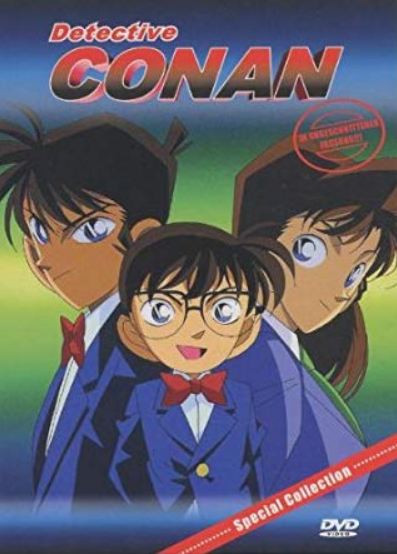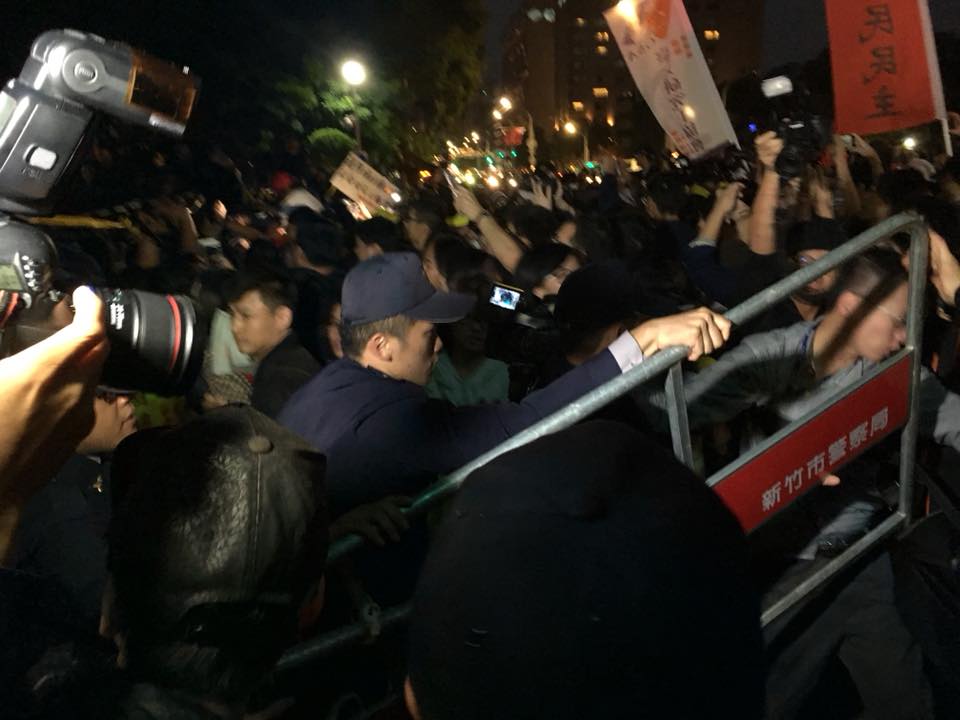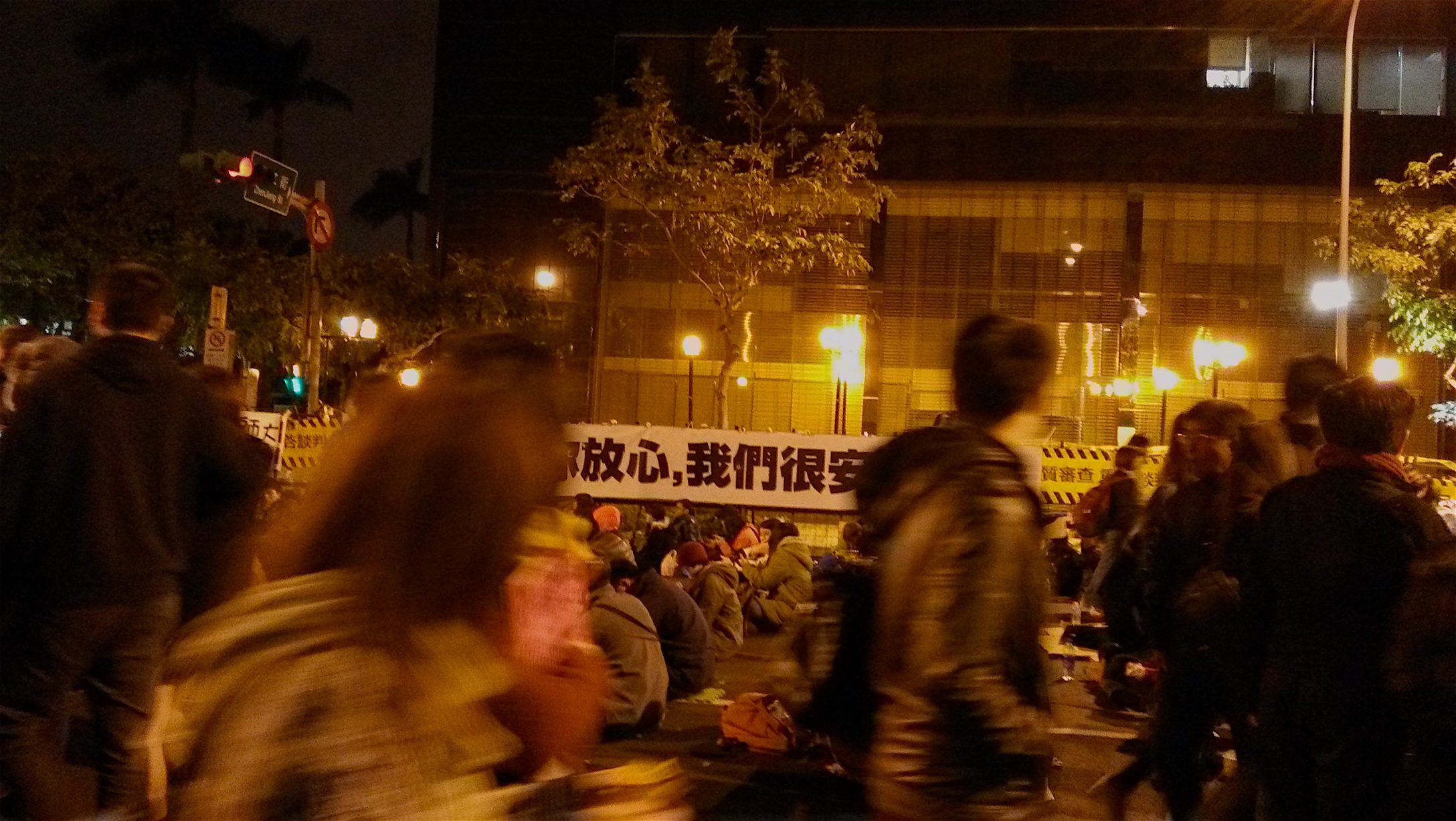In my younger days it seemed that wherever I went, a social movement would break out just in time for me to get sucked into it. In 2011, during college in New York City, it was Occupy Wall Street; in spring and summer 2012, when I went to Japan on exchange, the post-Fukushima anti-nuclear movement, then likely the largest social movement Japan had seen since the 1960s. After relocating from New York City to Taiwan in 2014 I took part in the Sunflower Movement, which involved the month-long occupation of the Taiwanese legislature by college students. Returning to Taiwan from grad school in the summer of 2015, I saw the weeklong occupation by high school students of the Taiwanese Ministry of Education. On my return to grad school in New York City in the fall of 2015, I would see the outbreak of Black Lives Matter.
I even acquired a nickname to that effect, in a 2015 interview on my founding of a publication on Taiwanese politics: as the “Detective Conan of social movements,” I was compared to the hero of a popular Japanese manga series who conveniently encounters a murder mystery almost everywhere he goes.

The last two years have been a bit more quiet. I feel some nostalgia for past times, in particular, the period before the Sunflower Movement, which at its height brought over 500,000 onto the streets of Taipei—some 2% of the Taiwanese population as a whole. In the years since, what we activists often refer to as the “social movement circle” (社運圈) has grown smaller and smaller. Some moved on; others just went back to the grassroots organizing they were doing before the Sunflower Movement. Still others entered new political parties, as a way to carry the movement into electoral politics.
At one point in Taiwan, activists were in themselves a social sphere with their own celebrities, social movement-oriented bands, clothing brands, films, and hangout spots. Now many of the prominent activist coffee shops have closed, and other activist-oriented businesses, such as clothing brands and music labels, are having trouble surviving.
Part of what I miss may be that social sphere. I think of it sometimes as something akin to the jianghu (江湖), a concept which has no equivalent in English , but refers to the community of martial artists in wuxia (武俠) novels, a sort of public sphere for itinerant, wandering social forces for justice. Well, maybe that’s romanticizing it somewhat.
 BRIAN HIOE
BRIAN HIOECertainly, there aren’t as many opportunities for me to get together with many old friends these days. But a large part of what I miss is the sense of immediacy. The sense of being able to realize social change through some form of direct action, even if it might be risky. The excitement of times that feel revolutionary. And I suspect I’m not the only one.
At the same time, having apparently traveled the world rushing into local social movements, I also wonder if I just spent so many years seeking out cheap thrills. The immediacy of a social movement offers a way to rupture the boredom of the homogeneous, empty time that characterizes daily life under capitalism. There’s something strangely enjoyable or maybe liberating about that intensity of involvement, despite the risks.
I realize I’m getting older. Although Taiwan hasn’t seen any movement on the scale of the Sunflower Movement since 2014, a younger generation of activists were key players in more recent protests—current college students in Taiwan, just like those of us who were college students during the Sunflower Movement four years ago. Arguably, some of the protests reached levels of conflict with police not even seen during the Sunflower Movement, with police cordoning off vast sections of the cityscape.
 BRIAN HIOE
BRIAN HIOEHaving transitioned from activist to journalist over the past four years, I covered these protests rather than playing a more active role. I don’t have the physical stamina to keep up with college students who can outrun police at a breakneck pace through the Taipei city streets, or play a game of cat-and-mouse with them through Taipei’s many small alleyways. Though I tried to keep pace with the protests, taking photos and live-updating, sneaking past police barriers to keep updates on a recent occupation, these activities generally left me catatonic the next day. During the Sunflower Movement, when I was 22, I felt like I could have just powered through almost anything, given enough caffeine.
A number of my friends have entered electoral politics. But slogging through legal documents is decidedly not as exciting as occupying the legislature. And electoral politics also involves compromises with the status quo, which means becoming increasingly conservative on some issues.
Though some have tried to convince me to enter one political party or another, I’ve decided to remain outside of electoral politics as a journalist for the independent media outlet that I co-founded, in order to retain a critical perspective on all political parties. From what I have observed in just the four years since the Sunflower Movement, I feel that I will likely share the same fate as an older generation of Taiwanese political radicals who decided to stay outside of the electoral political system—watching one’s friends grow more and more politically conservative as time goes on, even as they become increasingly influential. One can’t help wondering whether one could have accomplished more on the inside—no matter what one’s convictions are.
But it’s tough having to tell myself not to get too sentimentally attached to my friends who are now in politics. Members of the old guard of the Taiwanese democracy movement—Taiwan’s dominant center-left party, the Democratic Progressive Party, which emerged directly from the democracy movement—sometimes become quite uncritically defensive of their old friends who are now politicians, simply because they are good friends. I try to tell myself never to do that as I get older—even if it may mean that I’ll someday have to throw old friends under the bus; even if, someday, they come to see me as an enemy.
Not everyone would hope for the return of a political moment such as the Sunflower Movement. If such a movement were ever to break out again in Taiwan, it would mean something in our politics had gone horribly wrong, creating the need for another profound disruption of society.
As possibly the largest social movement in Taiwanese history the Sunflower Movement took a toll, mentally and emotionally, on its participants. It sometimes seems to me that those who have been able to stay part of the “social movement circle” for an extended period ended up becoming very emotionally distant people, simply as a way of coping with the strain of politics.
A Chinese dissident friend commented to me that her own experience suggested that the coldness of long-term dissidents may be a form of natural selection. It makes me wonder if, in the end, you always end up with a group of people who are overly dispassionate, no longer possessing the empathy for social concerns which led them to into a social movement in the first place.
I realize now that I was part of a moment in time, and that moment has more or less passed, which is why I spent an entire year—2017 to 2018—documenting the history of the Sunflower Movement, as one of the few people able to make such records both as a direct participant and as an observer. This project seemed a bit like retreating into a niche hobby at times in order to avoid confrontation with reality, like how the narrator of Borges’ “Tlön, Uqbar, Orbis Tertius” retreats into a translation of Sir Thomas Browne’s “Urn Burial” at the end of the story: a literary escape.
Either way, the work is worth doing. It is a way to make sense of my own journey up to this point, though everything fades.





